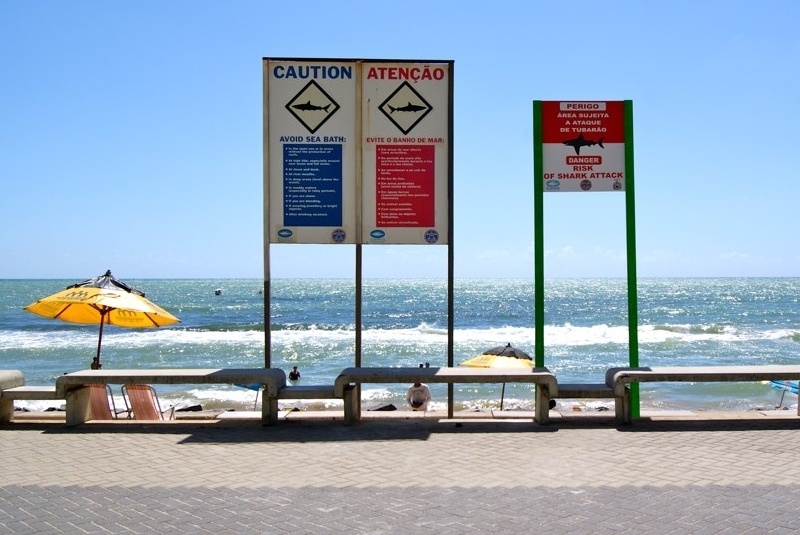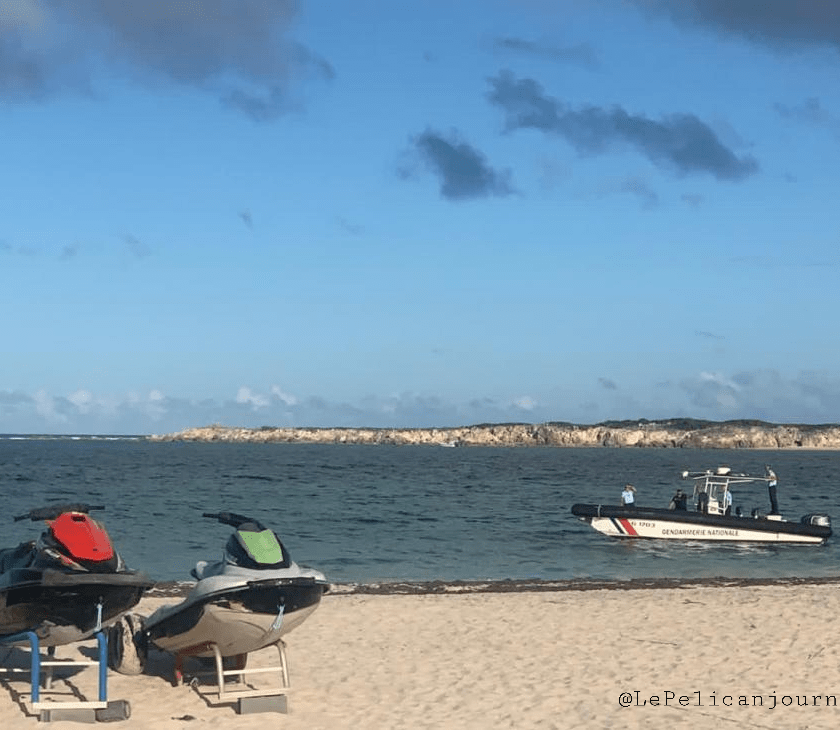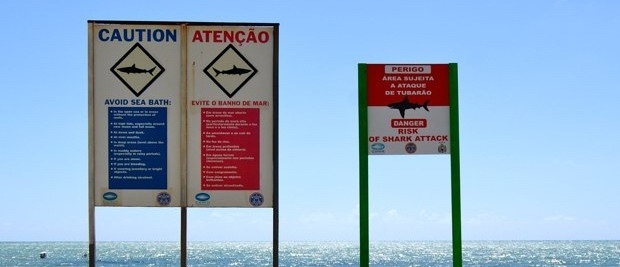A third shark attack has been reported by a snorkeler in the Bahamas.
An American tourist,32, from Fort Lauderdale was exploring the waters of Guana Cay from a 41-foot Bahama Craft with two other Americans July 4 when he was attacked by a shark.
The group was anchored in Nippers Cay and snorkeling off Nippers Beach when the unidentified man was attacked.
He was taken to a clinic in Marsh Harbour around 5:30 p.m. before being flown to New Providence for further medical treatment.
This is the third shark attack reported in the Bahamas this year.
Jordan Lindsey, 21, died as a result of a shark attack off the coast of Nassau June 26.
The college student was snorkeling with a group of visitors, which included members of her family, when she was attacked around 2 p.m.
Family members tried to warn her that a shark was approaching, but Lindsey did not hear the warnings and was bitten several times by a large shark.
Witnesses reported that a large tiger shark bit the young woman on the buttocks, legs, left arm and severed her right. Rescuers pulled her from the water, but she had already lost a tremendous amount of blood and died.
On June 21 Jonathan Hernandez was bitten on the left calf after shooting a hogfish.
Due to the freshly speared fish, the incident is considered provoked as spearfishing activates can attract sharks.
There were seven negative shark interactions reported in the Islands in 2018.
Four of the encounters were considered provoked due to the participation in water activities known to attract sharks. Another encounter involved a possible shark dive, but no information has been shared to confirm the type of dive or use of bait.
On April 15, 2018 Shane McConnell, 12, was bitten after falling in the water at the Bimini Big Game Pier.
The young man was bitten on both feet by an estimated 6-foot bull shark, which bit once before losing interest and swimming away.
Fishermen are known to clean fish and discard inedible scraps into the water drawing sharks which come to feed.
Tracking Sharks recommends snorkelers and other water users be as familiar as possible with the different species of sharks that live in planned diving destinations. The Caribbean is home to large sharks which may be encountered during excursions.
Snorkelers are advised to stay in groups, dive in areas with good visibility and scan their surroundings frequently.
When possible, ask someone monitor those in the water from a boat or other high platform. Not only can this help with a potential shark encounter, but raises awareness should anyone become separated from the group or pulled away by currents.
Excursion operators should carry tourniquets, first aid kits and have an emergency plan in place. Once on board, visitors should be informed of the locations of the items through a safety briefing.
As of July 8, 2019, there have been a total of 42 shark attack bites (39 with injury, 10 of which are considered provoked*) publicly reported and verified in 2019. Five fatal**
All locations have been marked on the 2019 Shark Attack Map.
21 were reported in the U.S. (including one fatal), with 7 occurring in Florida (3 provoked), 7 in Hawaii (1 provoked,1 fatal) and 2 in California (1 no injury). Eight have been reported in Australia, zero fatal. Four unconfirmed bites, worldwide, not included in the total count.
*Provoked defined as spearfishing, feeding sharks, fishing, etc. (listed with green marker).
**Not including one possible scavenge


